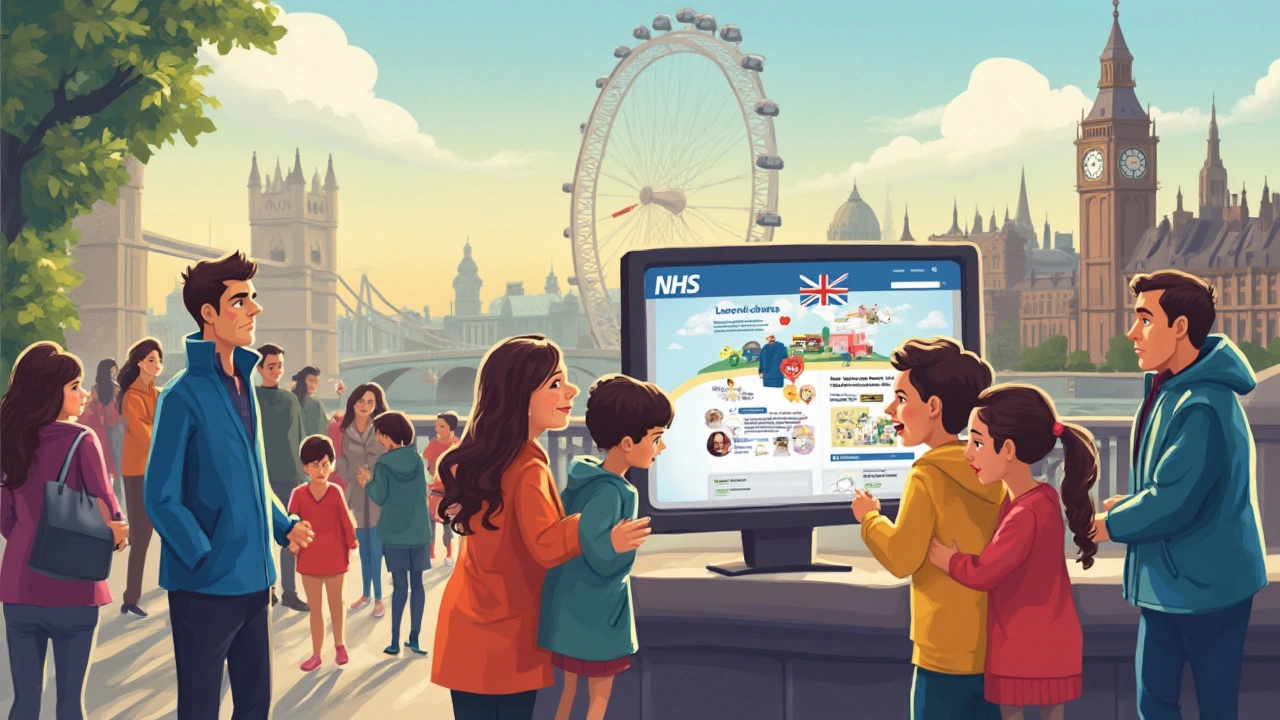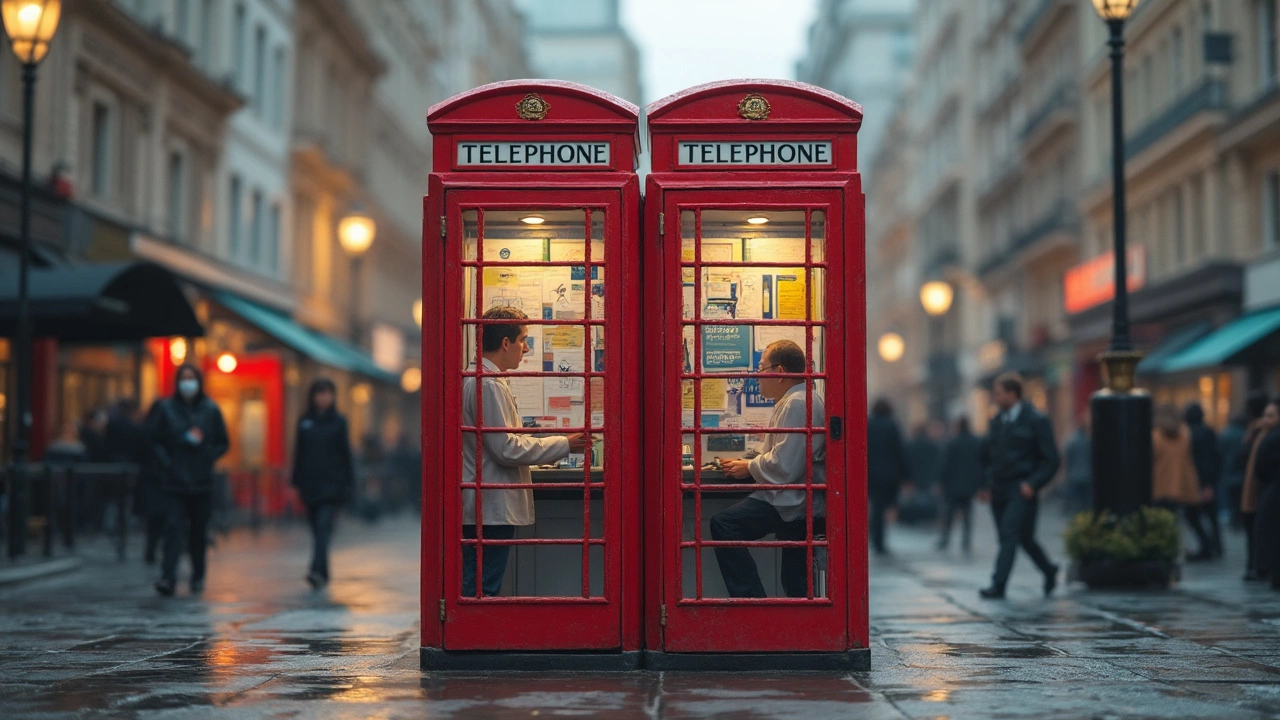
Did you know that while healthcare in the UK is mostly free at the point of use, it's funded by taxes? This means that anyone using NHS services won't pay when they're treated, but these services aren't exactly free—they're just prepaid in a sense. The NHS is pretty much a staple of British life, offering everything from routine check-ups to emergency care. However, not everything is covered, so let's take a closer look.
You'll find that the NHS covers a lot, but there are exceptions. Prescriptions, dental treatments, and eye care often come with charges, although there are exemptions for certain groups like kids or the elderly. Knowing these exceptions can save you some surprise expenses down the road!
For those seeking specific advantages, like faster appointments or choosing their own specialists, private health insurance in the UK is an option. It's an extra cost on top of what you already pay in taxes, but it might be worthwhile for peace of mind or convenience for some people.
- Understanding the NHS
- Costs Covered by NHS
- Private Health Insurance Options
- Tips for Navigating UK Healthcare
Understanding the NHS
The National Health Service, or NHS, is like a superhero in the world of healthcare for residents of the UK. Launched in 1948, it was the first of its kind to be publicly funded based on principles that healthcare should be available to all, free at the point of use, and based on need rather than the ability to pay.
What makes the NHS tick is primarily funding through general taxation. Essentially, if you're working and paying taxes in the UK, you're contributing to this health system. So, while it feels free when you visit your GP or hospital, remember, you're paying for it indirectly.
Core Services Provided
The NHS covers a monumental amount of care services that most people will need throughout their lives. This includes things like:
- GP visits
- Emergency treatments
- Hospital stays
- Most surgeries
It’s also pioneering in vaccinations and screenings to catch potential health problems early. Catching issues before they become big problems is a huge focus for the NHS.
What's Not Free?
It might be surprising, but not everything is covered at no cost. There are charges for prescriptions, dental care, and eye tests unless you're eligible for exemptions, like if you're under 16, over 60 or receiving certain benefits.
| Service | Cost |
|---|---|
| Prescription Charges | £9.95 per item |
| Dental Checkup | £23.80 |
With that in mind, some might prefer getting certain services through private health insurance to circumvent wait times or access additional services—this brings an extra choice into the equation.
The NHS might not be perfect, often criticized for long wait times, but it remains a pillar of the UK's commitment to accessible healthcare. Understanding the ins and outs can help you decide when to use NHS services or look into private options.
Costs Covered by NHS
Let's dig into what the NHS has you covered for. In the UK, most core healthcare services are available through the NHS without any direct charge when you use them. This means if you need to see a GP, have a hospital visit, or need emergency services, it's generally all sorted by the NHS.
Core Services
Here's a sweet deal: the NHS covers appointments with your GP, specialist consultations, hospital stays, and surgeries. If your doctor says you need specific treatments or surgeries, it's likely included under the NHS umbrella.
Dental and Optical Care
Now, when it comes to dental and optical services, it's a bit different. The NHS provides basic dental services but expect some charges. For instance, check-ups or fillings might cost a bit, though it's generally cheaper compared to private options. As for optical care, you'll find that the NHS covers essential eye exams for certain groups, like children or those over 60, but glasses and lenses usually come out of your pocket.
Prescriptions
Prescriptions are another area where the NHS does help, but not entirely for free. In England, there's a standard charge per prescription item unless you're exempt (think kids, pregnant women, or those with specific medical conditions). However, there are ways to save! Prepayment certificates can cut costs if you need lots of prescriptions.
Important Stats
While most of the UK follows a similar framework, did you know prescription charges are different across regions? Check this:
| Region | Prescription Charge |
|---|---|
| England | £9.35 per item |
| Scotland, Wales, Northern Ireland | No charge |
Pretty interesting, right? Navigating these specifics can make a big difference in understanding health expenses in the UK.

Private Health Insurance Options
Considering private health insurance in the UK? It's quite an option if you're looking for more flexibility or shorter waiting times for certain treatments. While the NHS does an incredible job, some people find value in having a backup plan through private cover.
What Does Private Insurance Cover?
Private health insurance can cover a wide range of treatments and services that the NHS might not offer immediately or at all, like physiotherapy, dental work, or specialist consultations. You often get the choice of where and when you're treated, plus which consultant or specialist you'd like to see. It can be a huge relief if timeliness is important to you or if you're looking for particular expertise.
Popular Providers and Plans
Several well-known companies offer personal health insurance in the UK, including Bupa, AXA Health, and Aviva. Each provider has its own set of plans and perks. These might range from basic policies covering essential hospital treatments to comprehensive packages that include alternative therapies and mental health support. It's all about what suits your needs and budget.
Costs and Considerations
Premiums can vary widely based on factors like age, health status, and the level of cover you choose. For instance, a young adult with no pre-existing conditions might pay a lower premium compared to someone older or with ongoing health issues. When shopping around, it's important to compare what's included—sometimes slightly higher premiums come with benefits like no-claim bonuses or additional family members added at a reduced rate.
Keep an eye out for health insurance policies with exclusions and limits, so you're not caught off guard. Some plans might not cover pre-existing conditions, or they might have a cap on how much they'll pay out for specific treatments.
Here's a quick snapshot of average monthly costs based on different factors:
| Age Group | Average Monthly Premium (£) | Provider Example |
|---|---|---|
| 18-29 | 50-80 | Bupa |
| 30-49 | 80-120 | AXA Health |
| 50+ | 120-200 | Aviva |
In short, private healthcare insurance in the UK can be a useful add-on if you're willing to pay for more options or faster care. It's worth investigating various plans and deciding if the benefits align with your healthcare needs.
Tips for Navigating UK Healthcare
Healthcare in the UK might seem straightforward with the NHS taking the lead, but a few practical tips can make navigating the system a breeze. Whether you're new to the UK or just looking to make the most of what's available, these pointers will help you stay on top of your healthcare game.
Register with a GP
The first step is to register with a General Practitioner (GP) as soon as possible. You'll need this for any non-emergency appointments. GPs serve as the gatekeepers to the healthcare system, so having one is essential for accessing services and referrals.
Understand Charges and Exemptions
While most NHS services are free, some costs may pop up like prescriptions, dental care, and eye tests. Make sure you know who's eligible for free services; children, pregnant women, and the elderly often qualify for certain exemptions. It's worth noting that the current prescription charge is £9.35 per item in England, though it's free in Scotland, Wales, and Northern Ireland.
Consider Private Health Insurance
If you want faster access or more choice, explore private health insurance options. It can supplement NHS services, offering quicker appointments or elective procedures not covered by the NHS. Compare different providers to see which package suits your needs and budget.
Emergency Care
In emergencies, don't hesitate to visit an A&E department or call 999. For more minor issues, consider calling NHS 111. It's a 24-hour helpline that can direct you to the most appropriate care. This can save time and keep A&E free for true emergencies.
Keep Updated with NHS Developments
Healthcare policies and services can shift. Staying informed means you won't miss out on any new programs or changes that might benefit you. Keep an eye on the official NHS website or sign up for newsletters for the latest updates.
With these tips in your back pocket, you should find managing UK healthcare a lot less daunting and much more efficient. Whether it's knowing when and where to get help, or understanding the costs, being prepared makes all the difference.